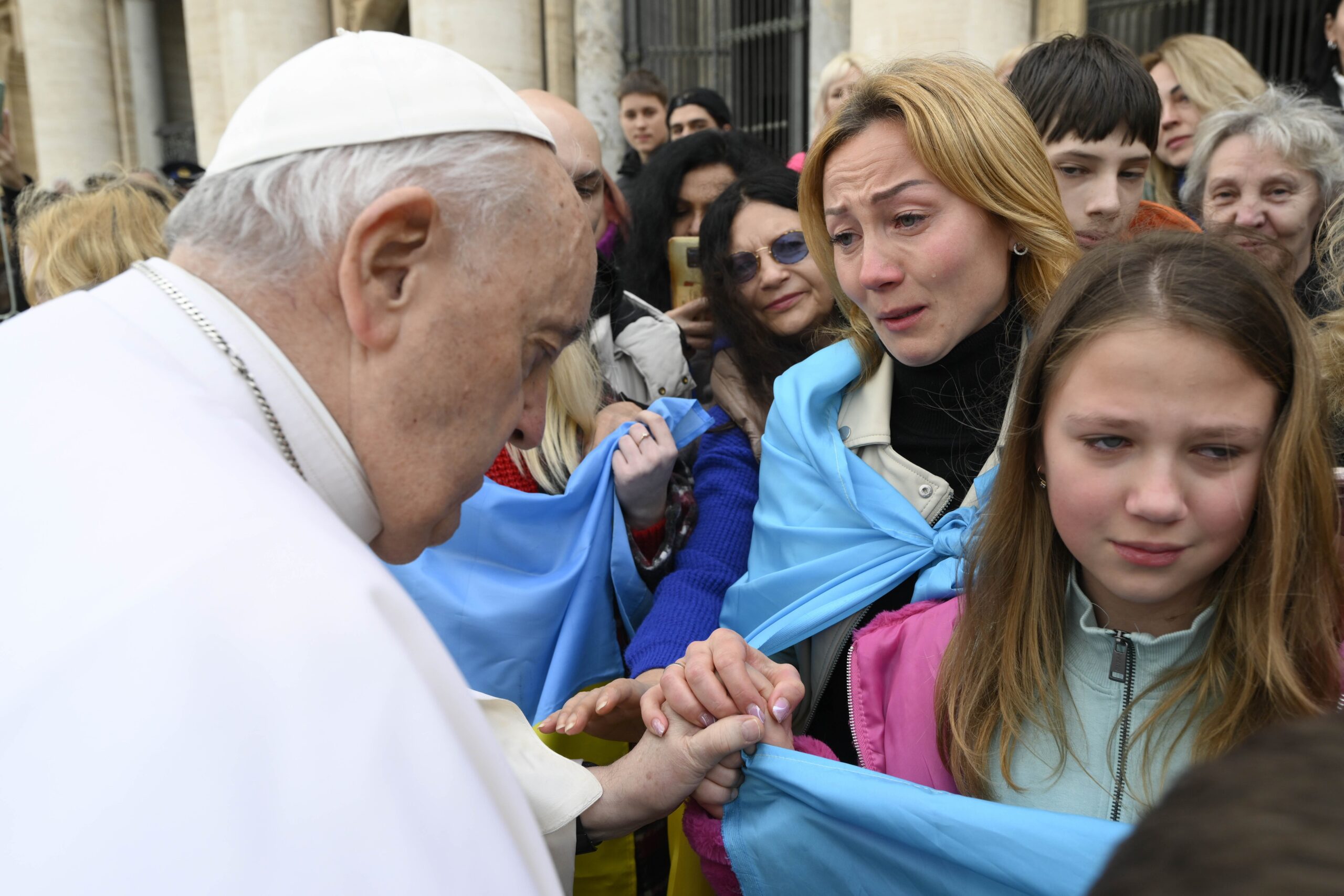Women can be ‘first allies of peace’ when human rights are ‘fully recognized,’ Vatican tells UN (Women’s History Month)
UNITED NATIONS — The Vatican’s United Nations mission condemned in remarks to the U.N. Security Council what it said was a worldwide increase in violence against women, and a decline in women’s involvement in the decision-making process.
The remarks came on the eve of the March 8 International Women’s Day, during a U.N. Security Council debate titled “Women, and peace and security.”
“Over the past few years, violence, including sexual violence against women and girls, has increased, while women’s representation in peace processes has declined,” the Vatican’s permanent observer to the U.N., Archbishop Gabriele Caccia, said in his written remarks to the U.N. Security Council March 7.
Archbishop Caccia quoted Pope Francis as telling Vatican diplomats last January that “women can offer their unique contribution to the life of society” and “be the first allies of peace” if human rights “are fully recognized for all.”
Pope Francis had observed that “in many countries, women are considered second-class citizens,” facing violence, abuse and limited access to basic necessities, such as education, employment and health care, Archbishop Caccia quoted the pontiff as saying.
“The Holy See condemns such treatment and deplores the situation faced by many women and girls,” the archbishop said.
His remarks were delivered by Msgr. Giuseppe Quirighetti, a counselor at the Holy See’s Permanent Observer Mission to the U.N.
In her address at the same Security Council debate, the U.S. ambassador to the U.N., Linda Thomas-Greenfield, said that by globally uplifting and empowering women “we create a more peaceful, more prosperous world for all.”
“It has been proven time and time again that women’s full, equal, and meaningful participation in peace processes as leaders, negotiators, peacekeepers and peacebuilders increase the chances of a just and lasting peace,” she said.
Later, on her way out of the debate — in which she had highlighted “oppressive measures against women” in countries such as Afghanistan, Iran and Somalia and in areas of Ukraine occupied by Russia — Ambassador Thomas-Greenfield vowed to “never shy away from the fact” that women in the U.S. faced challenges as well.
“The right to make intensely personal choices free from the interference of politicians has been stripped away from millions and millions of women in the United States,” she told reporters, an apparent reference to U.S. states enacting restrictions on abortion following the 2022 U.S. Supreme Court decision in Dobbs v. Jackson Women’s Health Organization, which overturned Roe v. Wade and returned the abortion issue to the states.
The Catholic Church opposes direct abortion, teaching that it is an act of violence that takes the life of the unborn child, and as such, does not advance women’s equality. Pope Francis spoke against the promotion of abortion in a 2020 video address to the U.N. General Assembly, when he told delegates, “It is troubling to see how simple and convenient it has become for some to deny the existence of a human life as a solution to problems that can and must be solved for both the mother and her unborn child.”
At a March 7 U.N. side event, women from various Middle Eastern nongovernmental organizations discussed the challenges women and girls in their respective regions face.
“In general, women are controlled and are dominated by a patriarchal situation,” said Brigitte Chelebian, about her home country, Lebanon, where she works to promote the rights of women, in part by engaging and convincing the country’s mostly male religious leaders.
“In Lebanon, we have 19 (religious) sects, so we have 19 personal status laws, and we have different jurisprudence,” she told OSV News, adding that religious leaders can also be “very controlling.”
“They have good and bad effects sometimes on the families and on women,” she said.
This article was written by James Martone, OSV News from New York.
Featured image: Pope Francis greets Ukrainian refugees after his weekly general audience in St. Peter’s Square at the Vatican March 8. As he has done for more than a year, the pope asked people at the audience to pray for peace in Ukraine and for the victims of the war. (CNS photo/Vatican Media)



